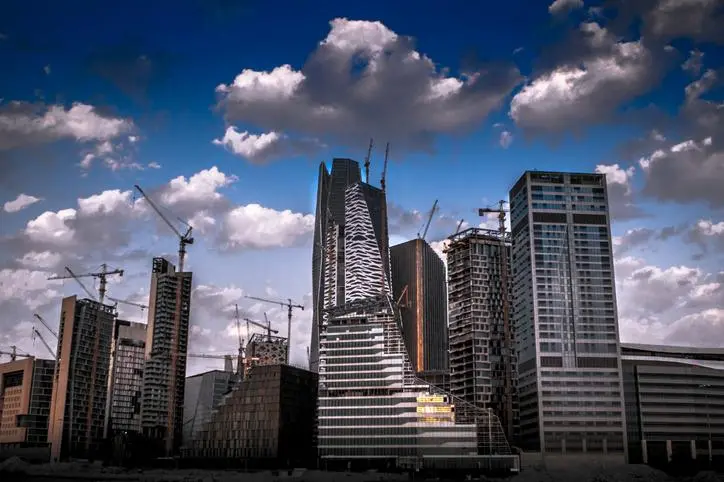PHOTO
A major staging ground for international military operations and home to 29 per cent of the world's known oil reserves, the Arabian Peninsula is at the centre regional and world politics. It is a geopolitical entity and the Arabian Gulf Cooperation Council (GCC) is the embodiment of that geopolitical identity. The GCC countries no longer define their identity based on the body of water called the Arabian Gulf, rather they are increasingly defined by the land mass called the Arabian Peninsula. The Peninsula is bordered by the Arabian Gulf to the East, the Arabian Sea to the South, the Red Sea to the West and the Mediterranean Sea to the North.
Understanding the Arabian Peninsula as strategic for GCC countries should bring in a new sense of geo-strategic nationalism. While it may carry echoes of the Arab Nationalism that Gamal Abdel Nasser of Egypt once promoted, its ideology now is not the "exceptionalism" of the Arab identity but instead the economic and security aspects of the region. This region is not only surrounded by four vital seaways, it is in the 'middle' of Europe and Asia as well as Africa and Asia.
The region is also at the heart of the greatest challenges of this century - extremism and radicalisation. The new drive towards economic and security integration currently led by Saudi Arabia and the UAE and other GCC member states are geared towards creating alternative corridors where peace and stability reign. Economic packages and diplomatic engagement with Egypt, Jordan, Iraq, Sudan, Somalia, Eritrea, and Morocco help create an economic network that can be a basis for stability in the region.
The UAE, as a link that connects the East and West, and the North and East, has always stood for peace with stress on stability for growth. The country's investment in aviation, shipping, ports and airports is a recognition of its pivotal role in the region.
And its support for the security of the countries it works with is based on an understanding that collective security is part of national security. The formation of the GCC in 1981 happened after the Islamic revolution in Iran and the dominant driver for its formation was creating a unified front against Iran's proclaimed mantra of "exporting" its revolution southwards.
For about 37 years of its history, the bloc has had its successes and failures, but has sustained its unity. Since the boycott of Qatar there has been talk of the disintegration of the grouping, with the Doha Institute describing the GCC summit in Kuwait as the "end of the Gulf Cooperation Council." The US and Europe stress on the need to maintain the "unity of the GCC" as a priority for regional stability, especially the US which feels that a unified bloc is crucial in countering Iranian influence in the region.
The GCC will not break up but it is changing, with the Saudi-UAE strategic partnership having a direct impact on it. The Guardian described it as "reshaping the GCC".
However, it must be noted that the Saudi-UAE alliance has been an ongoing process that started in 2014 during the reign of the late King Abdullah of Saudi Arabia. The partnership began with a high-level visit of a Saudi delegation headed by Prince Khaled Al Faisal, the then minister of foreign affairs, and included Prince Mohammed bin Nayef then minister of interior and Prince Khaled bin Bander, then head of intelligence. The delegation was tasked with "strengthening the strategic relationship between the two countries on all fronts". After King Abdullah passed away, the partnership continued and gained strength under King Salman bin Abul Aziz.
May 2016 witnessed the formation of Saudi-UAE coordination council. The year 2017 was fast paced for both countries with the formation of a committee led by the Crown Prince of Saudi Arabia, Mohammed bin Salman and His Highness Sheikh Mohamed bin Zayed Al Nahyan, Crown Prince of Abu Dhabi and Deputy Supreme Commander of the UAE Armed Forces.
However, the relationship between the two nations have grown beyond bilateral with the geostrategic realities in the region. The two countries, along with the GCC lent support for Egypt's and Jordan's stability and for Iraq's reconstruction. The two nations are standing together with Yemen for its legitimacy and for brokering peace in the Horn of Africa.
The UAE and Saudi security engagement is important for the region and beyond. The EU in particular is well-positioned to benefit from it, be it from infrastructure investment in Africa or securing Bab Al Mandab or even reducing the flow of radicals from Chad to Libya. Europe's trade will benefit, and so will China's, India's and that of the US. For, the security of the Arabian Peninsula will not be driven by Iranian influence, but by the stability of the Red Sea and Arabian Sea and their contribution to international security.
Mohammed Baharoon is the Director-General of b'huth,an independent think-tank based in Dubai
Copyright © 2018 Khaleej Times. All Rights Reserved. Provided by SyndiGate Media Inc. (Syndigate.info).





















